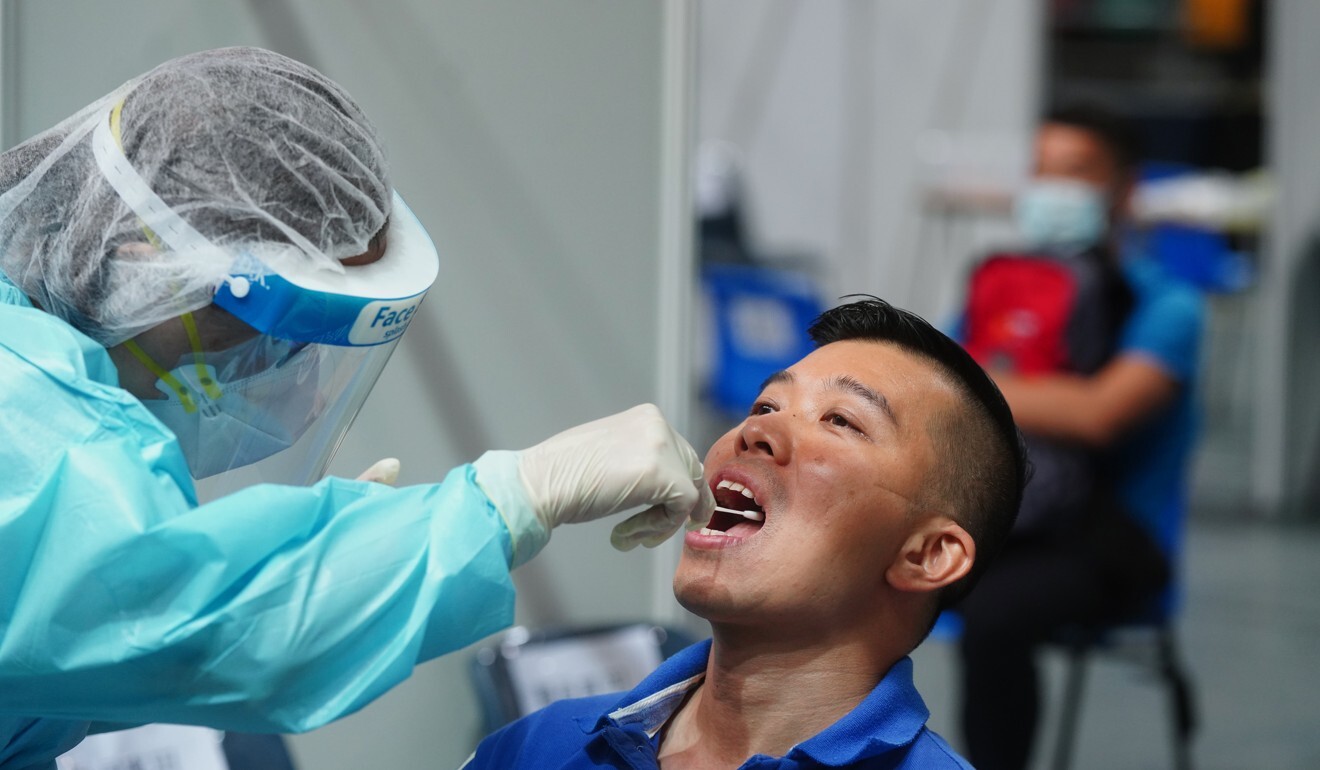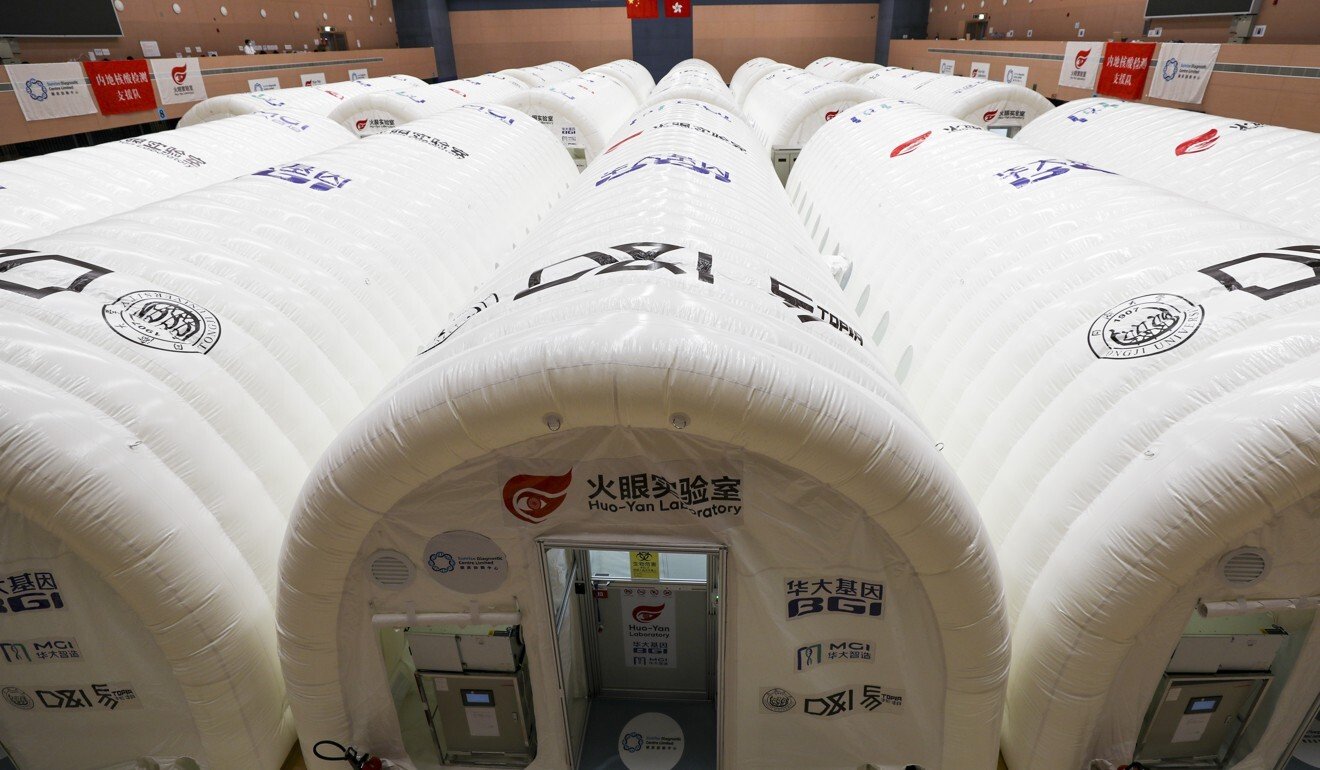
Sore shoulders, dirty diapers: member of mainland team discusses experience with Hong Kong’s Covid-19 testing scheme
- Deng Yanqin, of the Fujian Center for Disease Control and Prevention, says team members assisting in testing scheme wore diapers to minimise breaks
- She also recalls positive feedback from Hongkongers, despite negative public reactions to mainland assistance
Members of the mainland support team taking part in Hong Kong’s mass coronavirus testing programme have a secret weapon to raise efficiency: diapers.
Deng Yanqin, a member of mainland support team, said she and her colleagues worked 12-hour shifts a day initially, with their working hours later reduced to eight hours a day – sans bathroom breaks.
“To raise efficiency, team members put on diapers so that they could stay in makeshift laboratories for eight consecutive hours,” she said during a group interview with the Post and a handful of other Hong Kong media outlets on Saturday.
Deng, who came from the Fujian Center for Disease Control and Prevention, is one of the 600-member support team sent to Hong Kong to operate lab facilities for the mass testing programme.

She said team members were divided into about a dozen groups specialising in different procedures.
The city launched the testing scheme – free for the city’s more than 7 million people – on September 1 in hopes of tracking down invisible transmission chains amid a fierce but dwindling third wave of coronavirus infections.
“Many team members have suffered muscle soreness in their shoulders and hands because of long working hours,” Deng said. “But they insist on carrying on their work despite the soreness.”
As of 8pm on Saturday, more than 1.6 million specimens, representing 21.5 per cent of the city’s 7.5 million residents, had been tested under the programme, which has uncovered 23 cases so far.
Earlier this week, the government decided to extend the programme for three days, until Monday, across 57 sample collection centres.
Hong Kong reports 13 new Covid-19 cases, reaches grim milestone of 100 deaths
Deng said she was impressed by the support of Hong Kong residents.
“They sent emails, cartoons and flower baskets to us in appreciation of our work,” she said.
“I feel the warmth from what they did. I’m confident that Hong Kong can contain the coronavirus given the support from the city’s residents.”
The positive feedback Deng recalled stood in stark contrast to the publicly negative reactions to the first batch of mainland support teams who arrived in Hong Kong early last month.
Localist district councillors staged protests on August 5 outside a Yau Ma Tei hotel where the mainland team stayed.
Similar scenes took place on August 7, when the government revealed it was building a temporary lab at Sun Yat Sen Memorial Park for the mainland experts to carry out virus tests, with a group of opposition district councillors again showing up to protest.

Analysts said they were not surprised that the scheme had become politicised – as with almost any issue involving the mainland – with the news of mainland assistance coming as the city was still reeling from the roll-out of the sweeping, Beijing-imposed national security law.
Hong Kong recorded 13 new Covid-19 cases on Saturday, extending its run of fewer than 20 daily infections to a sixth day, while also reaching the grim milestone of 100 deaths.
The city’s official tally has now reached 4,938 infections.

